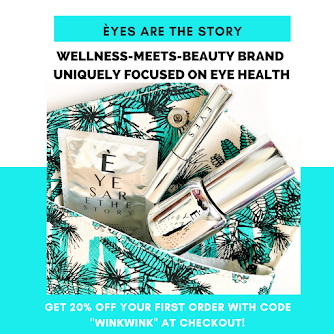If you are a regular here, you know I was very excited to speak as a panelist for Allergan this weekend at the North Carolina Optometry Fall Congress in Asheville, NC. It was such an honor to sit beside some of the most recognized female optometry leaders in our state: Dr. Ann Hoscheit and Dr. Sally Miller. Both are published, private practice owners that have held numerous leadership positions both in state and national optometric organizations, and I was a bit out of my league as the "new doc perspective" on our panel. It was an incredible experience, and I came away with a few new concepts that I thought more female and prospective ODs might benefit from:
- Create your own personal statement: This is a common tool used in business management, but as a person, it is so important to know what you stand for too. Just thinking about what you want to accomplish, what you want to prioritize, and what you want as your personal identity can help guide your decision making through the entire year. Ask yourself who you want to be as a doctor, a wife, a mother, or any other responsibility you have in your life. If you know your own identity, and what you want to be, it really helps you stay focused on what truly matters in the stresses of daily life.
- Don't be afraid to negotiate--and learn how to speak the language of negotiation: For me, this is a very challenging task. As a new grad, I felt like I was just one more face in a sea of graduating optometrists looking for an opportunity to see patients. The first time I spoke to students in optometry school, they asked me how I negotiated my contract and employment. My helpful response? It didn't really work like that. For me, I was not in the position to buy in to partnership with an established OD, and I had just two job offers to choose between. Not much negotiation. Looking back, maybe if I had had more of a business background I would have understood that I had more room to negotiate my situation than I thought at the time. Since my first signed contract, however, I have done a lot more negotiating than many would think. As an OD you are constantly negotiating your hours, your number of patient exams in a given day, your exam time slots. The helpful advice given at this Allergan panel meeting was that as women, we need to negotiate for ourselves like we are negotiating for a business. Dr. Rachel Wruble advised to negotiate for the business of you -- less personal desire, and more how what you are requesting is an asset to the company or situation. For example, it feels natural to say, "I want a lunch break because I will get hungry if I work for that many hours without lunch." I know I said something similar the first time I negotiated my hours. But if you want to have a bigger impact in the business world, negotiating is less about you, and more about how you function within the business. You need a lunch break because without a chance to refuel, you will be working less efficiently, and risking providing a lower level of care. That turns the exact same concept less personal; creating a greater level of importance and impact for your request.
- The Future Is Bright: I capitalized this because there was an overwhelming positive message to this meeting of the female minds. We discussed the importance of public outreach in educating Americans about the importance of the eye exam, with programs like the AOA's Think About Your Eyes campaign and even the impact on a smaller level that school screenings or career days to educate young people about what we do. Our profession is such a legislated career, and political action campaigns are the arena where optometry gains its rights for practice and to see patients on insurance plans that may try to cut us out. We have to fight for new healthcare changes that will provide patients access to us with equal pay as our MD counterparts. And there are so many new fights on the horizon, like the proposal for universal licensure that would make optometrists licensed nationally instead of filing for individual state licensure. The important take away is that we need leaders in this industry with a voice, that are willing to fight for our profession. I hope to become more and more involved in getting the word out about optometry (the driving force between the creation of this blog back in 2011!)




























.jpg)